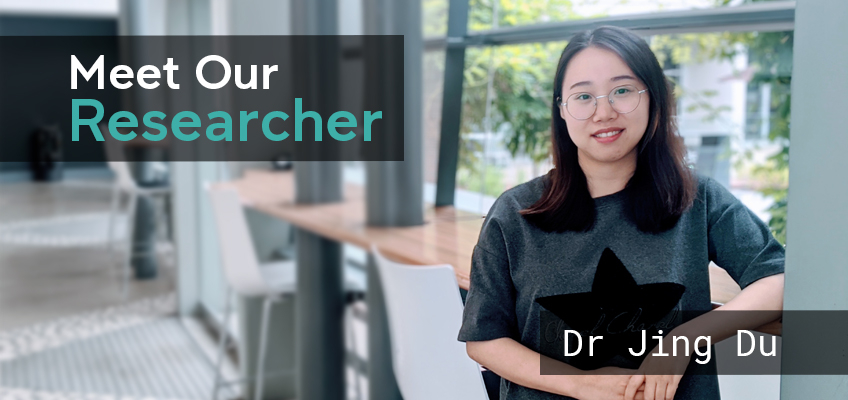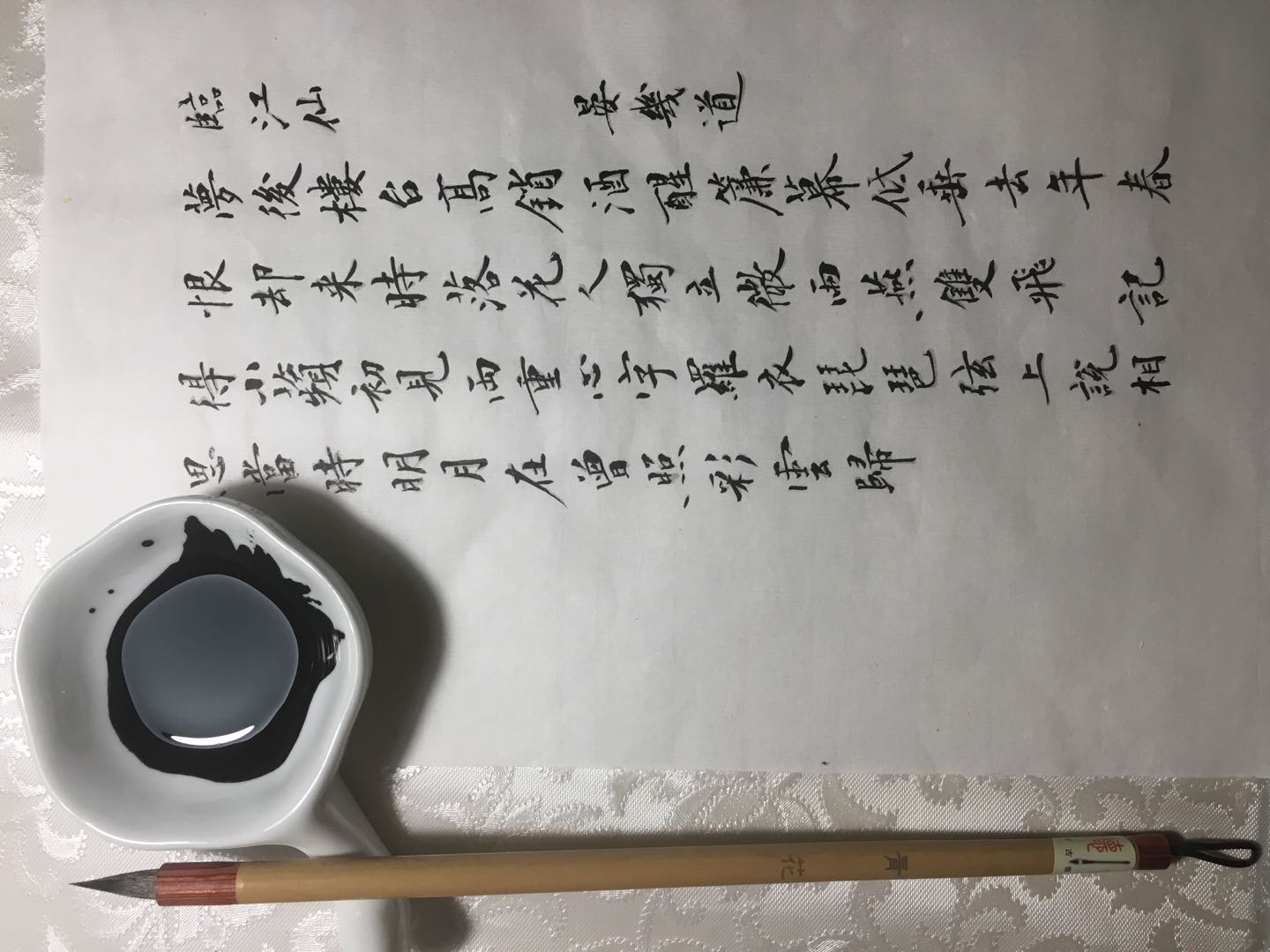14 Dec 2020

PhD Candidate with CHeBA’s Neuroimaging Group, Dr Jing Du, is aiming to find the relationship between vascular burden and brain structural or functional changes in the ageing process, using Diffusion-weighted imaging techniques. Her ultimate hope is for her research to be meaningful and that it has an impact on future generations.
How did you first get into research?
After completing my bachelor, I made the decision to continue with a Medical degree in Neurology, which opened the window for me to look at a variety of neuropsychiatric disorders. The accumulated experience I gleaned studying Neurology helped me acquire a basic understanding of ageing and brain diseases and fuelled my interest in conducting research around this topic. During this period, I began to pay close attention to cerebral small vessel disease, including risk factors, imaging manifestations and cognitive changes over time. I was quite fascinated when I saw that brain lesions like atrophy, microbleeds and lacunar infarcts could be captured by MRI in vivo and non-invasively. I hope I can obtain more informative data of both healthy and diseased brains from neuroimaging.
Did you experience a ‘defining moment’ which led you to this field?
I didn’t have a clear defining moment that has led me to this field, but I have always hoped to do something for patients and for the development of brain science, even if it is only a very small contribution.

Do you have any personal interests or activities which are protective behaviours against cognitive decline?
Maintaining a balanced diet and keeping regular exercise patterns are definitely crucial to protect from cognitive decline; both of which I do. Apart from that, I occasionally enjoy writing calligraphy and complex mental activity has also shown to be protective for brain health. I was born in China and so am of course very familiar with those Chinese characters, but I am still amazed by the beauty and variety of the Chinese fonts. I practice writing calligraphy when I feel stressed or restless to help calm me down and empty my mind. Writing calligraphy requires my attention concentrated on my hand to keep steady, so this activity quite possibly also strengthens the function of my frontoparietal lobe and cerebellum.
What are you currently researching?
My PhD topic is focused around investigating the vascular burden of ageing brain using Diffusion-weighted imaging (DWI) techniques, which allows the mapping of diffusion process of water molecules to generate contrast in MR images. DWI techniques are usually used to evaluate the white matter integrity, which is vulnerable to the effect of vascular risk factors. It is possible that ageing brains suffer significant micro-structural changes due to vascular factors before functional changes such as cognitive decline, which could obviously be able to be observed.
It would be inspiring if we could find a neuroimaging biomarker to detect those subtle changes in order to help inform research and ultimately work toward preventing Alzheimer’s disease and other dementias.
Why is your research important?
Vascular risk factor is thought to be one of the most important environmental factors contributing to the ageing brain - except for the genetic effect. Investigation with DWI techniques can help us understand how our brains get deteriorated under the effect of vascular burden. If the micro-changes detected by DWI techniques can discriminate those elderly with high dementia risk from general healthy population, it will be promising to prevent the brain functional deterioration at a very early stage, when no cognitive changes were observed. Neuroimaging manifestation may not be a golden standard for dementia diagnosis, but it is a robust tool that help us monitor the minor changes in the brain and find out the most suitable timepoint for intervention.
What do you love about working for CHeBA?
I love the atmosphere in CHeBA; everything can be discussed here. People at the Centre are all very friendly and there is an enormous spectrum of expertise across the researchers so if I encounter any problems, I can easily go to them for help. My supervisors are very generous with their help and assistance, not just with my research work but they also provide powerful mental support.
What is the ultimate hope you have for your research?
To solve a problem is the hope for every research, no matter how small or complicated the problem. As for my own research, my aim is to find the relationship between vascular burden and brain structural or functional changes in the ageing process. It is important to note that research is not only about undertaking the research, but for us to be able to apply the knowledge to clinical practice. For example, to discover the pathological process of Alzheimer’s disease is a difficult and challenging task, but if we are able to figure out the complex pathological process of the disease, we might be able to invent specific and effective drug interventions.
My ultimate hope is that research is “meaningful” and has an impact on future generations.
This interview was undertaken during the COVID-19 self-isolation period. Dr Jing Du found that having video calls over dinner with her family and friends supported her mental resilience and kept her feeling socially connected while physically isolated.
Donations are fundamental for critical research to continue following COVID-19.
If you would like to discuss supporting Dr Du's work specifically, or would like information
on leaving a legacy via a Gift in your Will, please contact h.douglass@unsw.edu.au.

Jing Du is a PhD candidate with CHeBA’s Neuroimaging Group, under the supervision of Associate Professor Wei Wen and Dr Jiyang Jiang. She completed a Bachelor of Medicine at Soochow University and a Master of Medicine in Neurology in Shanghai Jiao Tong University in China. She is interested in investigating the ageing brain as well as neuropsychiatric diseases using neuroimaging techniques. The topic of her PhD is to investigate the effect of vascular burden on ageing brain using DWI techniques.
